
This article is more than
1 year oldThousands of people are once again living in fear of execution after a ruling upheld a country’s terrifying law.
The Uganda constitutional court this week upheld the country’s Anti-Homosexuality Act 2023 that was signed into law by President Yoweri Museveni in May. It includes the death penalty for “aggravated homosexuality” and was deemed one of the harshest anti-gay laws in the world.
The bill was challenged in court by activists who argued that it violates citizens’ constitutional rights and was responsible for over 600 human rights violations and abuses against the LGBTQ community since its enactment. Activist said the law unleashed a torrent of abuse against LGBTQ people including rape, arrest, torture and eviction.
“We decline to nullify the anti-homosexuality act 2023 in its entirety, neither will we grant a permanent injunction against its enforcement,” Uganda’s deputy chief justice Richard Buteera, said of the ruling.
However, the court voided certain parts of the law that it said were “inconsistent with right to health, privacy and freedom of religion”.
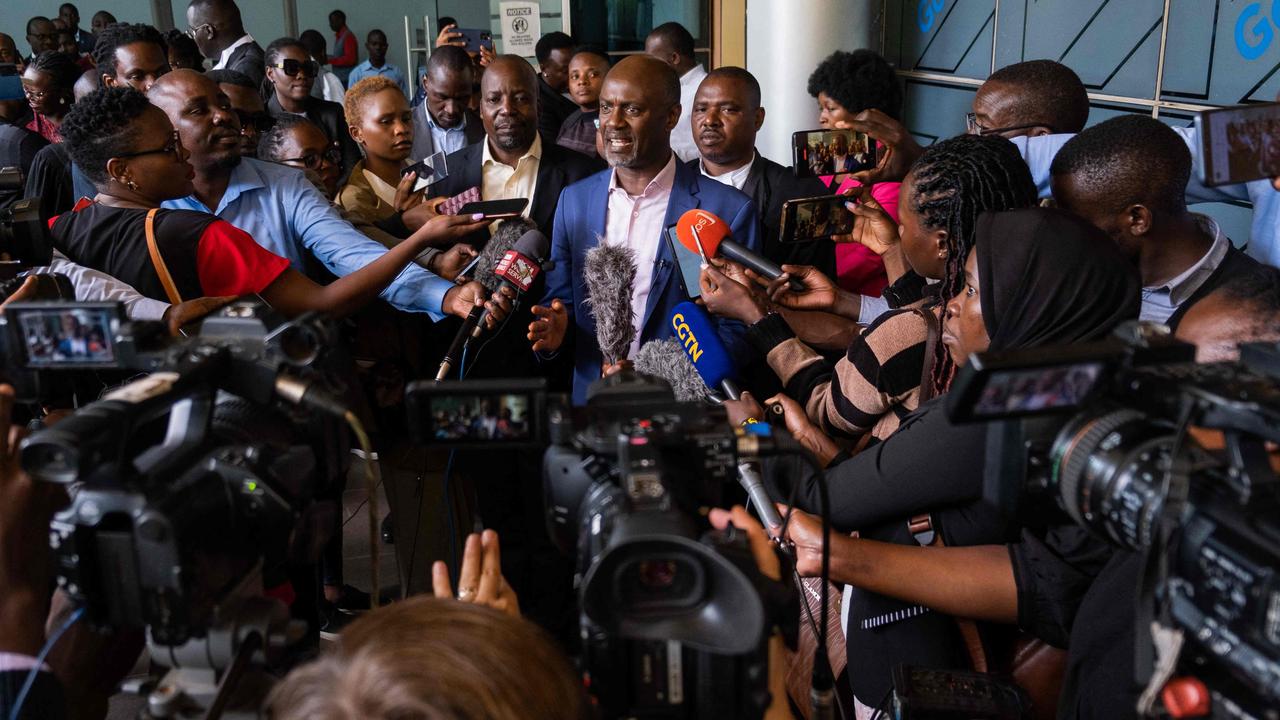
Speaking to the press after the ruling on Wednesday, Petition lawyer and human rights attorney Nicholas Opiyo said: “The court today decided that it is legal and lawful to discriminate against LGBT people. They decided that it is legal to exclude the LGBTQ community from participating in the affairs of their country simply on the basis of public sentiments and alleged cultural values.
“ I think it’s sad that the court played to public sentiments and did not apply the law. To that extent I think the court is wrong.”
This is not the first time LGBTQ Ugandans had to go to court to fight for their rights to exist. A similar situation occurred a decade ago when LGBTQ Ugandans challenged the “Anti-Homosexuality Act 2014” also known as “Kill the Gays Bill” due to its original death penalty clause in court.
The bill was passed by the Parliament of Uganda and signed into law by the President of Uganda Yoweri Museveni on 24 February 2014, but the bill was later nullified by the Constitutional Court of Uganda on procedural grounds on August 1 2014. Only for a similar bill to be introduced 10 years later and the constitutional court upheld it this time.
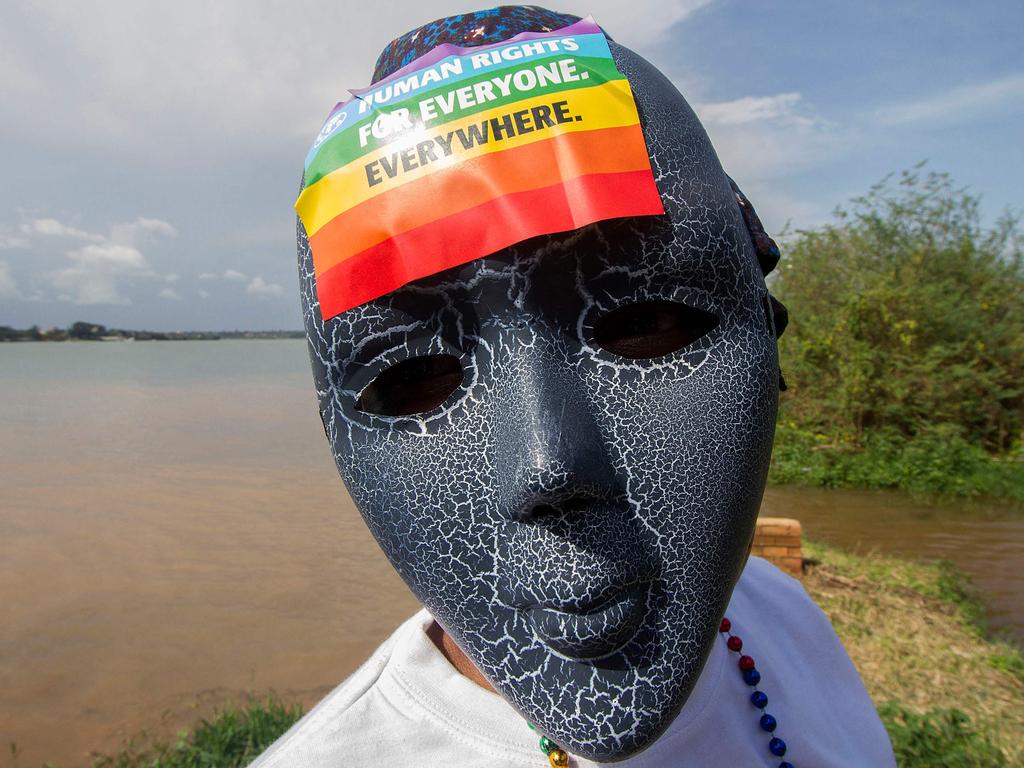
Frank Mugisha, a prominent Ugandan rights activist and one of the petitioners in the case said: “The court affirmed the sentiments of the homophobic Ugandan public albeit without any evidence on the record. Shame!”
Another activist Steven Kabuye, co-executive director of NGO Coloured Voice Truth to LGBTQ, who was nearly fatally stabbed in January, said the decision pushed the LGBTQ+ community in the country into “a Pandora’s box” and “the price of freedom to an ordinary LGBTQ+ Ugandan is death”.

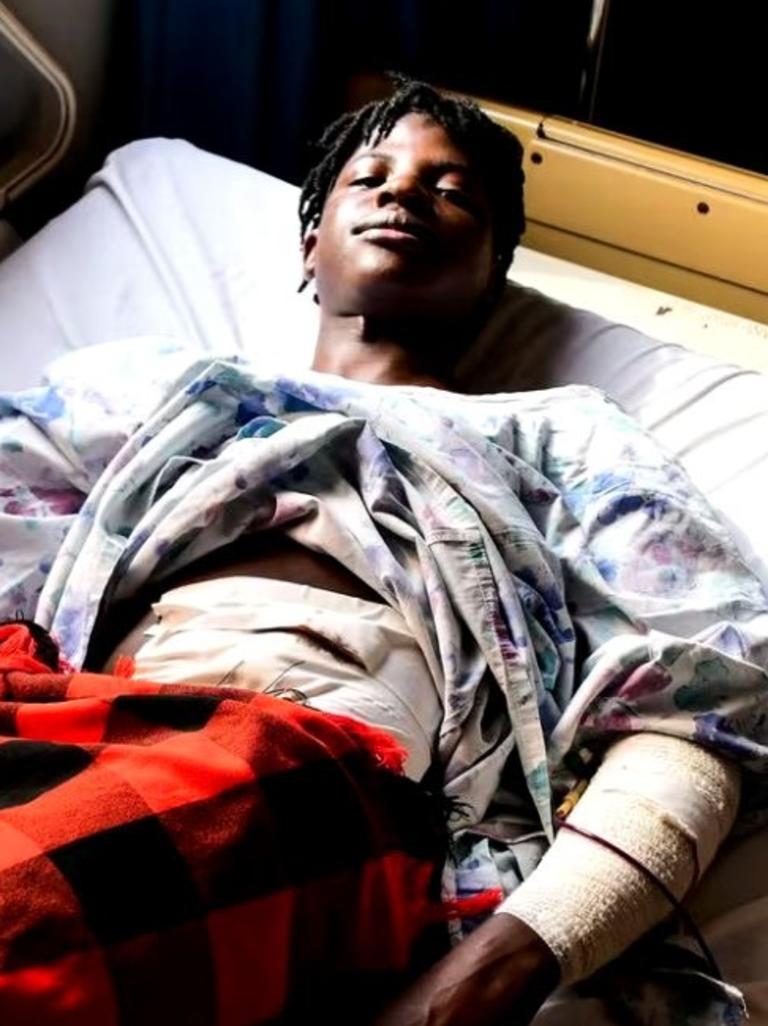
Rejecting the nullification, the constitutional court scrapped only two sections and two subsections while declaring the rest of the law constitutional. The sections of the act that were abrogated had criminalised the letting of premises for use for homosexual acts and failure to report anyone engaging in homosexual acts to the police, both sections violates individual rights.
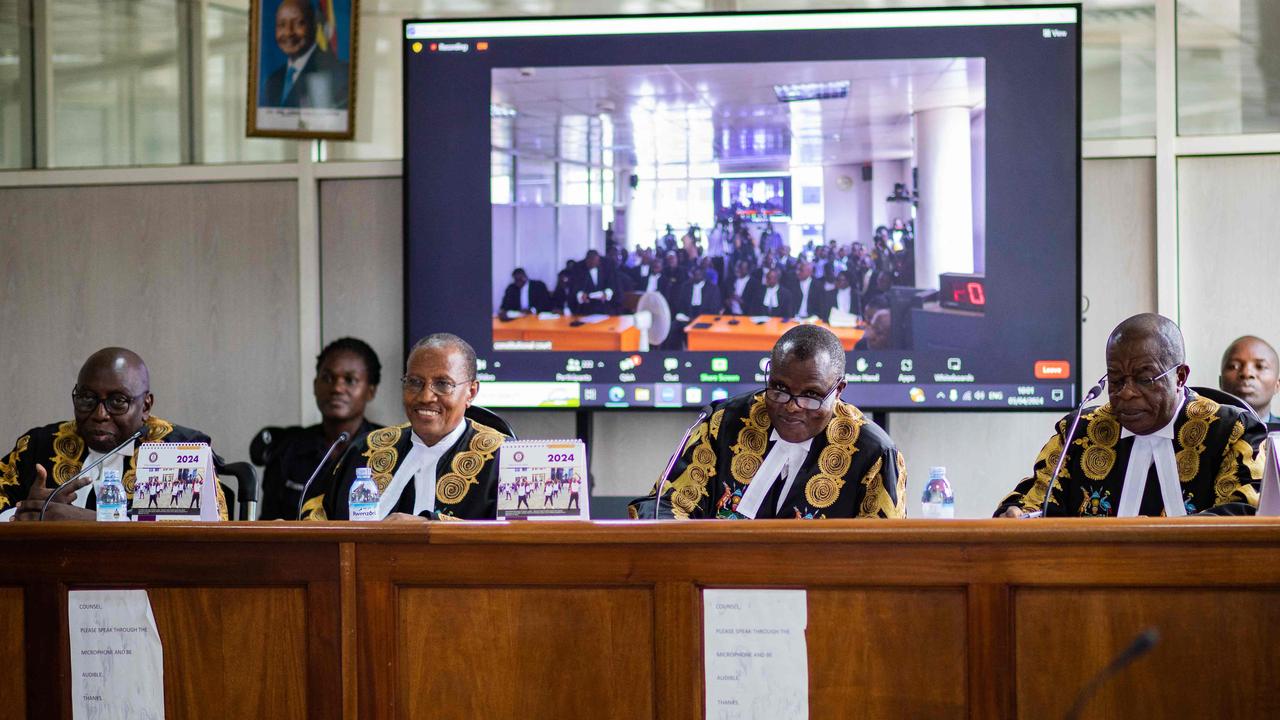
The White House Press Secretary, Karine Jean-Pierre called the court’s decision “a small and insufficient step towards safeguarding human rights” and vowed to continue to advocate for human rights in Uganda.
“The United States is deeply concerned about the remaining provisions, which undermine public health, human rights and Uganda’s international reputation,” Jean Pierre said in a press statement.
“No one should have to live in constant fear, nor be subjected to violence or discrimination. It is wrong.”
When the law was enacted in May 2023 the World Bank halted new loans to Uganda, and the United States announced visa and travel restrictions against Ugandan officials.
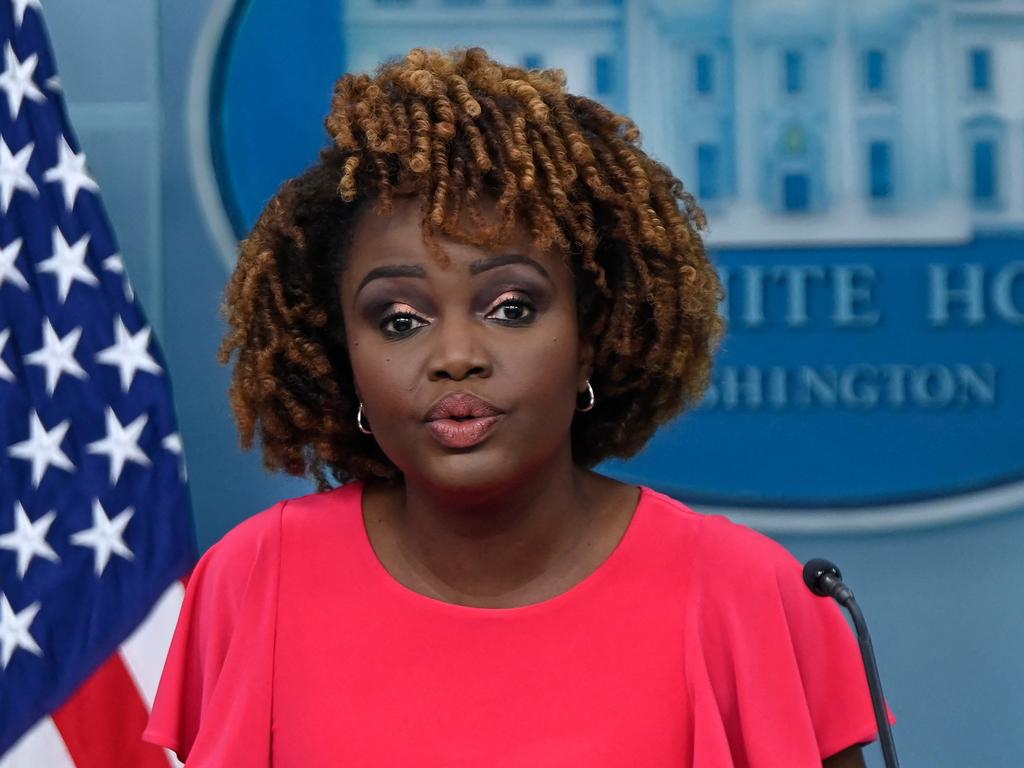
Many activists fear the court’s decision will give more credibility to the domino effect the Ugandan bill has already triggered in Africa. Philip, a Ghanaian activist, said he’s afraid the ruling will bolster the Ghanaian anti-gay bill that was just passed last month and is awaiting approval from the president.
“The bill passed by the Ghanaian parliament was a product of the Ugandan draconian bill which is still causing a crackdown across Africa. But with this ruling I’m afraid LGBTQ Ghana would meet the same fate as Ugandans. Because one thing Africans agree on no matter the religion or culture, is their disdain for homosexuality,” he told news.com.au.
In August, eight people were arrested in Uganda under the law which carries the death penalty. Due to the petitions and ongoing challenges in court, the cases were deferred, but with the constitutional court upholding the law, the cases will now be going to trial and the death sentence is possible if found guilty.
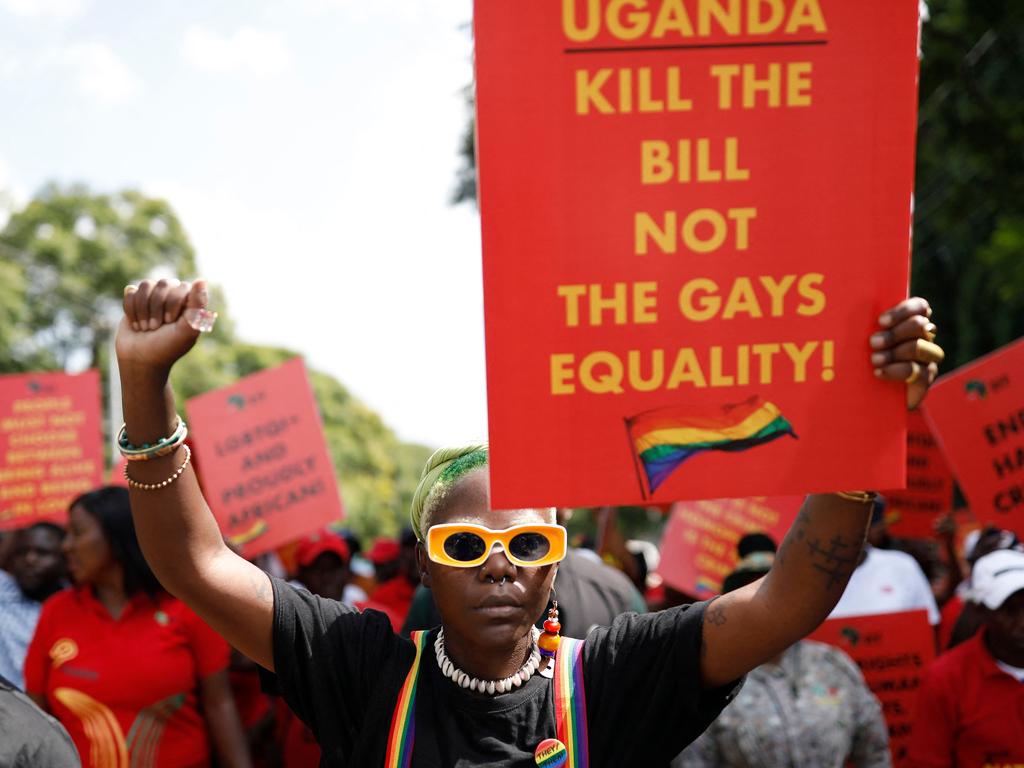
Frank Mugisha, co-convener of Convening for Equality group (CFE), said that there have been over 180 cases of evictions, 18 cases of forced anal examinations, 176 cases of violations of torture, 159 cases of violations of the right to equality and freedom of discrimination, and 102 hospitalisations directly linked to the violations. And these are only cases that have been reported and documented.
Some activists believe that the Ugandan government is trying to bait donors for cash by scrapping two sections of the law.
Steven Kabuye said in an interview with Devex: “The Anti-Homosexuality Act 2023 has been re-edited, with articles that were objected by the World Bank and PEPFAR removed and the court slapped it back to the LGBTQ+ community in Uganda. We should not waver in our fight against this law. We should fight it now more than ever.”
Another LGBTQ rights activist, Ruth told news.com.au that the court decision has caused the LGBTQ community a great deal of pain.
“For the past months we’ve been hoping we could use our constitutional rights to save our skin and keep our heads. But the court decision has made us despair, and right now I can’t think of anything else that could save us other than the international community’s intervention,” she said.
“We don’t have anything in Uganda. We’ve lost our families, friends, jobs and homes because we decided to live our truth. And today they’ve confirmed we’ve lost our rights too.
“Without our rights, we’re just defenceless preys waiting to be taken apart by homophobes who have made it their patriotic mission to terrorise us.”
Daniela Anthony is a freelance writer based in Nigeria.